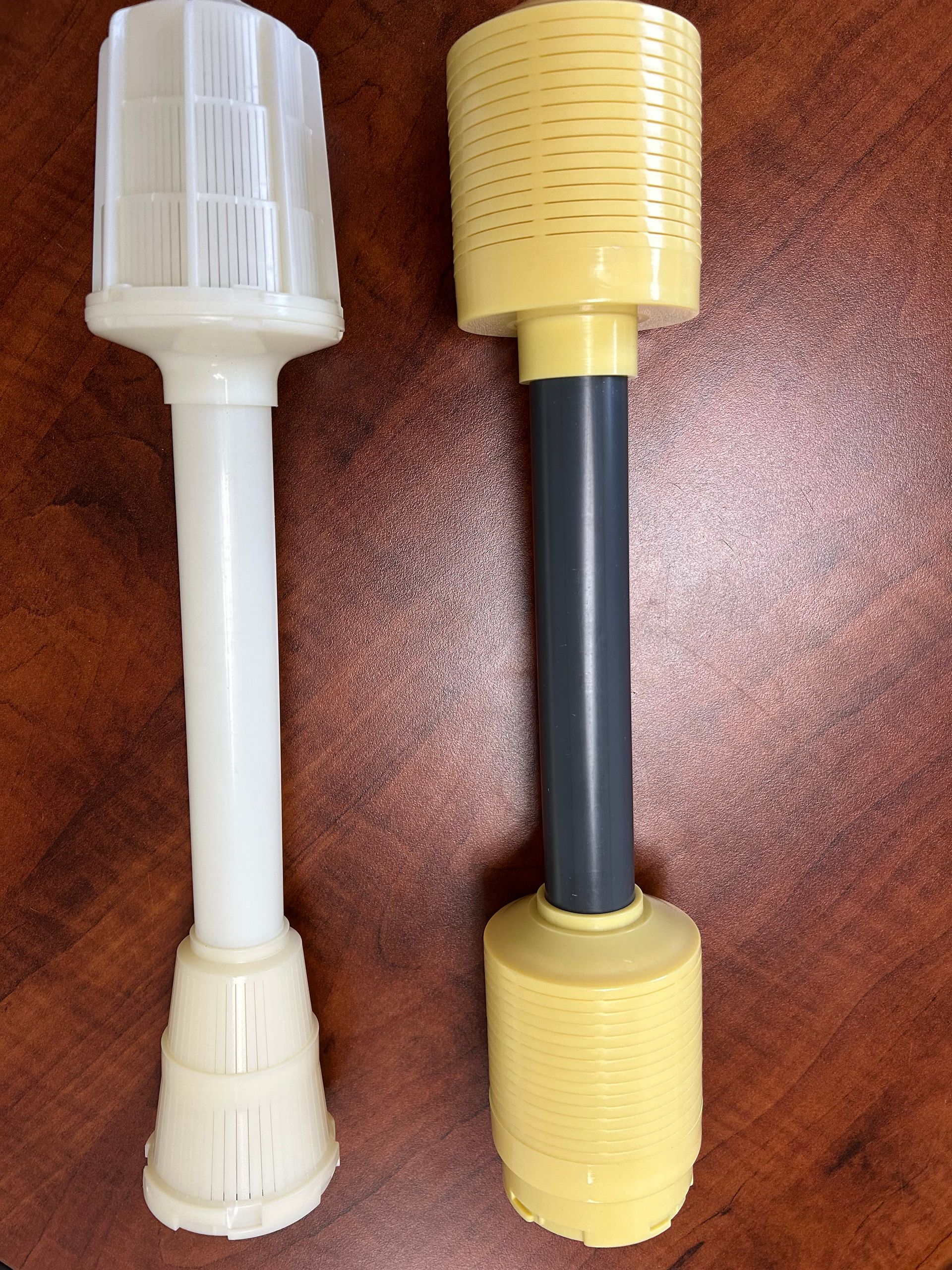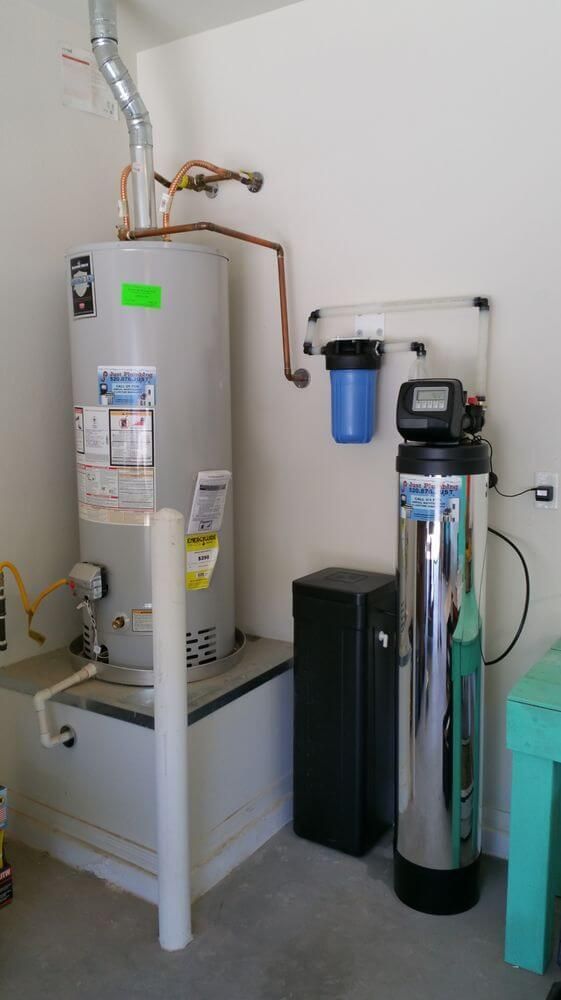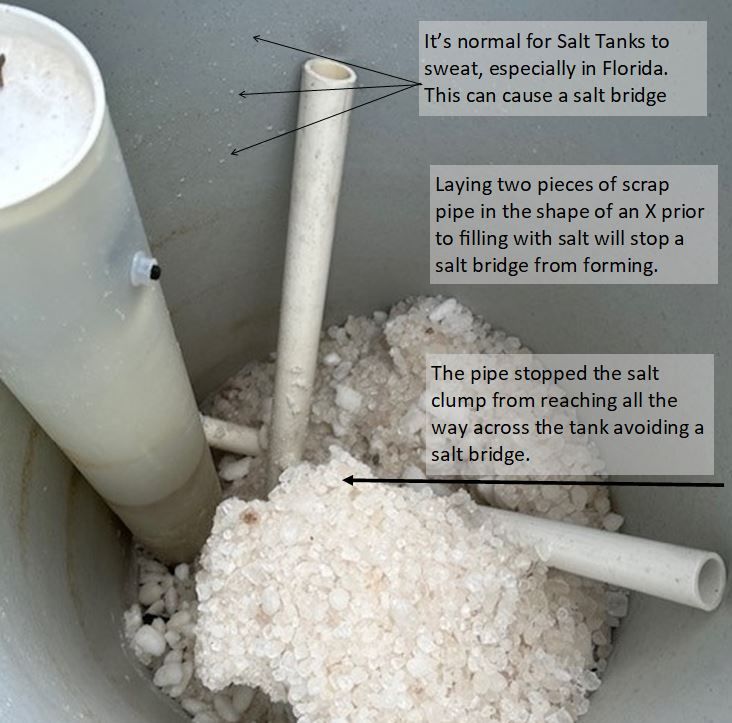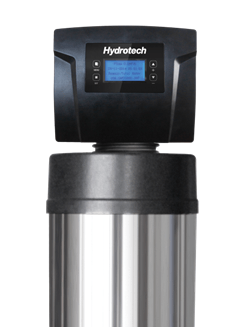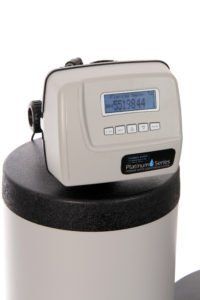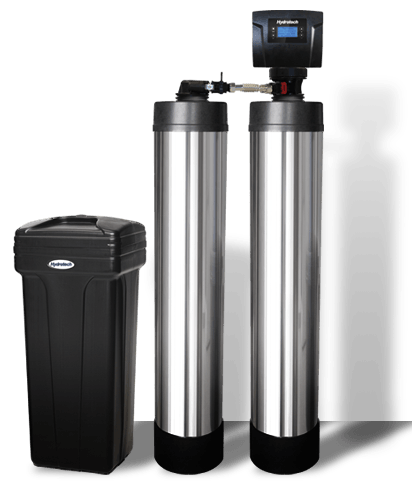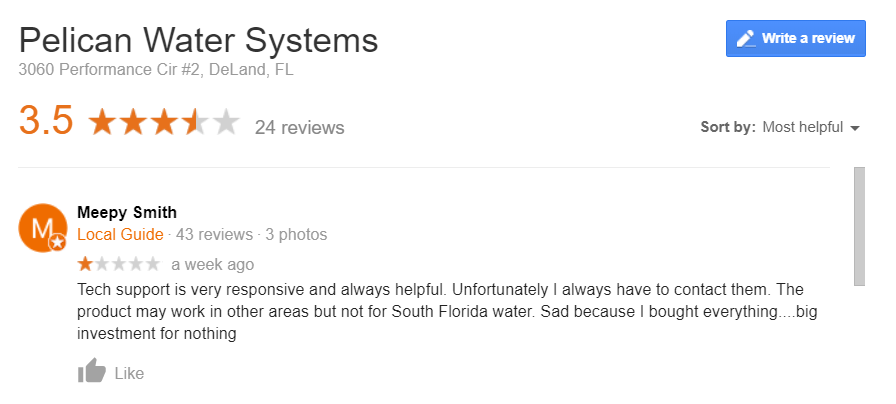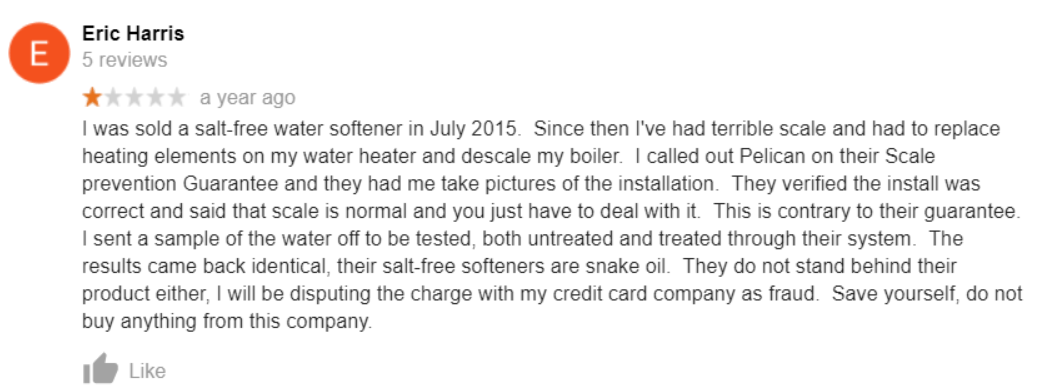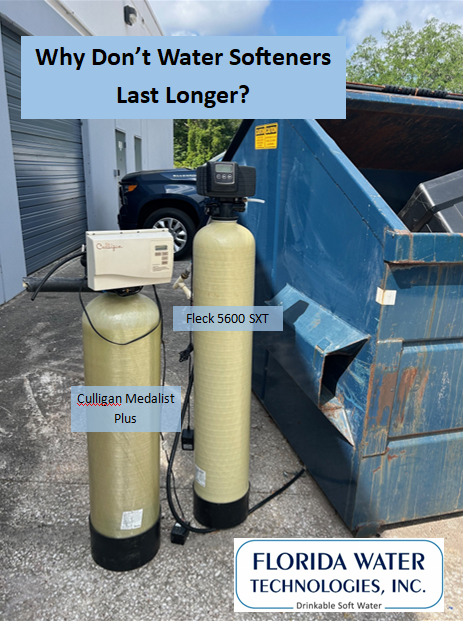Florida Water Technologies water filtration systems are built with the latest technology, providing clean, fresh, and pure water that you want and deserve. Our experienced staff offer cleaning services to your existing or new water softener and annual product checks.
This comparison is between our Hellenbrand ProMate 6.0 water softener and the Pelican Water Systems. We have been installing the ProMate 6.0 into homes and businesses for over 10 years and our customers are very happy with their systems. Here is a direct quote from one of our customers: “Excellent product and even better service. I couldn’t be more happier. They made sure everything was in order and working properly and triple checked their work before they were done. Chris even came by the next day to see how things were going. During the install they also replaced my kitchen faucet and Brad the owner even went to Home Depot to get some better quality parts then what I had under the sink. I am very pleased and would recommend them to anyone. Job well done.”
What’s the Main Difference?
The main difference between these systems is simple.
-
- Florida Water Technologies installs traditional salt based systems that completely remove the hard water minerals. It would be impossible to have symptoms of hard water in your home with our installation.
- Pelican Water Systems do not remove any of the hard water minerals. Symptoms of hard remain in the water that supplies your home or business.
Why does Florida Water Technologies install Hellenbrand ProMate 6.0?
Built around a Vortech distribution plate with Superior Flow technology and featuring 10% commercial grade resin, the ProMate 6.0 uses less water and retains efficiency longer than most entry level systems—all while reducing energy costs by maintaining ENERGY STAR ratings.
distribution plate with Superior Flow technology and featuring 10% commercial grade resin, the ProMate 6.0 uses less water and retains efficiency longer than most entry level systems—all while reducing energy costs by maintaining ENERGY STAR ratings.
What does a Pelican Water System do?
They claim that the Pelican system can zap or alter the hardness minerals (but not remove them) to make these minerals act like soft water instead of hard water inside your home. The problem with that is, there is no test in chemistry to prove or confirm that a real change has taken place . You are more or less taking a step of faith.
This is a side by side look at how these salt free systems perform against traditional salt based systems when used in our very hard local water supply. We will compare how these systems work on spots, film, plumbing and appliances.
Hard Water Spots and Film
The primary concern for our customers seeking a water softener system is it’s effectiveness in reducing or removing hard water spots and film. The never ending spots and film associated with Jacksonville hard water can be overwhelming and it’s important to know that Pelican Water Systems do not impact or reduce the spots and film associated with hard water. In their own words, PSE 1800 / PSE 2000 owners manual, they clearly state that hard water spots are MORE visible with their system versus a traditional water softener because they do not actually remove the culprit, which is hardness minerals. The comparison with this one is easy for hard water, spots and film. The ProMate 6.0 Water Softener is far superior with reducing or removing hard water spots and film.
 Pelican Water Systems
Pelican Water Systems
- Hard Water Minerals NOT Removed = Hard Water Spots and Film Remain
- No Chemistry Test to Confirm Results = How Do You Determine Results?
- Hard Water Minerals ARE Removed = Hard Water Spots and Film are Amended
- Chemistry Test CAN Confirm Results = Peace of mind is guaranteed
Plumbing and Appliances
Spots and film will remain with the use of a Pelican water system, but what about the plumbing and appliances? In accordance to the Water Quality Research Foundation , who conducted testing on – water heaters, low-flow showerheads and faucets, dishwashers, and clothes washers – hard water much more rapidly harmed the effectiveness of the appliances. Based on the data by the independent research firm, soft water will significantly improve the usefulness and life of all your appliances. There is no question about that fact.
- Hard Water Minerals NOT Removed = Scale Deposits WILL remain in your plumbing system
- Hard Water Rinse Agents (chemical water softeners, i.e. surfactants) : are required in the dishwasher
- Hard Water Minerals ARE Removed = Scale Deposits WILL NOT remain in your plumbing system
- Soap usage reduced by 60% and NO RINSE AGENTS are required ,
Final Thought
Salt based water softeners are the preferred hard water treatment method in Jacksonville Florida. Florida Water Technologies has been delivering great water softeners at common sense prices to our area for over 10 years. Traditional salt based systems have been established as the primary solution to hard water problems for 100’s of years and because of their effectiveness, have stood the test of time. Salt free, too good to be true, systems have been tried over and over with no sustainable results.
The Hellenbrand ProMate 6.0 not only out outperform Pelican Water Systems they cost less too.
The post Water Softener Comparison: Pelican Water Systems appeared first on Florida Water Technologies.
